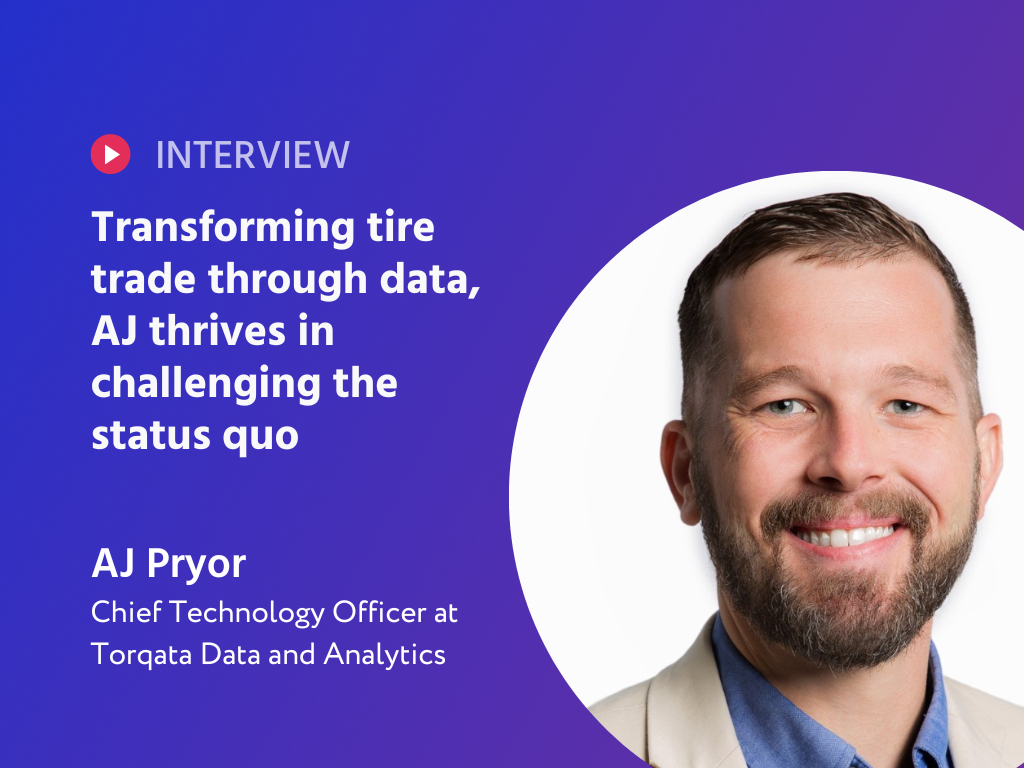The autonomous vehicle industry is on the brink of a major breakthrough, and few understand this better than Xiaodi Hou, CEO of Bot Auto. With over a decade of experience in autonomy and a track record of building innovative startups, Xiaodi has been at the forefront of the self-driving revolution.
In this exclusive interview, he shares his journey from founding his first company in online advertising to leading a cutting-edge autonomous trucking enterprise. Having previously co-founded TuSimple, a NASDAQ-listed company, Xiaodi brings invaluable insights into the evolution of self-driving technology and the challenges of scaling a business in this fast-moving industry.
He reflects on the lessons learned from past ventures and how they shape his leadership at Bot Auto. From the technical advancements in AI to the strategic decisions that drive business success, Xiaodi offers a compelling perspective on the future of autonomous trucking. Join us as we dive into his vision, the roadblocks ahead, and the exciting possibilities that lie ahead for self-driving heavy-duty trucks.
From Ad-Tech to Autonomous Trucks: How Xiaodi Hou Found His True Calling
Xiaodi Hou’s journey into autonomous trucking wasn’t exactly planned—it was the result of a failed experiment in online advertising. Back in 2014, he was deep into neural networks and deep learning, convinced that AI had the power to revolutionize the industry. But something didn’t click. "I realized online advertising wasn’t the best use case for deep learning," he admits. That realization pushed him to think bigger—way bigger. Instead of optimizing digital ads, he turned his attention to something far more tangible: self-driving trucks. It was a bold pivot, but as Xiaodi puts it, once he started down that road, he never looked back.
I realized online advertising wasn’t the best use case for deep learning
Despite being a serial entrepreneur, Xiaodi doesn’t come from a business background. His parents were engineers, and their influence shaped how he approaches leadership. He sees companies as engineered products, carefully designed to create value. “I never believe in a zero-sum game. I believe in creating extra value through technology and engineering,” he says. This perspective has defined his journey—first at TuSimple, where he helped build a NASDAQ-listed autonomous trucking company, and now at Bot Auto, where he’s working to push the industry forward.
But building a tech company isn’t just about having great technology—it’s about making sure all the pieces of the business fit together. That’s a lesson Xiaodi learned the hard way. Early in his career, he focused too much on the tech and not enough on the bigger picture—things like business strategy, product definition, and even PR. “Technology can solve problems, but in the end, every company faces non-technological challenges,” he reflects. Now, as the CEO of Bot Auto, he’s not just leading the tech roadmap—he’s leading the whole company, ensuring that every piece, from engineering to strategy, moves in sync toward a common goal.
The Real Roadblock to Self-Driving Trucks? It’s Not the Tech—It’s the Business Model
For Xiaodi Hou, running a tech company isn’t just about having great technology—it’s about making sure the entire business strategy is aligned. Many founders either try to do everything themselves or offload non-tech responsibilities entirely. Xiaodi believes in a middle ground. “You can’t just ignore things like insurance because you’re a tech guy. Every part of the business has to work together.” That mindset has shaped his approach at Bot Auto, where he takes ownership of not just the technology, but the overall company strategy—ensuring that every decision fits into a larger vision.
You can’t just ignore things like insurance because you’re a tech guy. Every part of the business has to work together
One of the biggest issues in autonomous trucking, he argues, isn’t the technology itself—it’s the way companies are trying to commercialize it. Investors have poured millions into the industry, but with little to show for it. Why? Because too many companies are chasing the dream of selling a “black box” self-driving system without considering the real-world challenges. Who cleans the sensors? Who maintains the trucks? Who actually sells this product to trucking companies that may not even be ready to adopt it? These hidden costs are the reason why progress has been much slower than promised, leaving investors frustrated and skeptical.
That’s why Bot Auto is taking a different route. Instead of selling software or hardware, they operate their own autonomous trucks and sell transportation as a service. “We’re not selling a black box—we’re selling capacity,” Xiaodi explains. By handling customer acquisition and operational costs themselves, they remove barriers that have stalled the industry. Unlike competitors trying to push products into a market that isn’t ready, Bot Auto is building a business model optimized for minimizing costs and maximizing efficiency. And according to Xiaodi, that’s the only way autonomous trucking will truly take off.
Why Autonomous Trucking Isn’t a Competition—It’s a Credibility Battle
Xiaodi Hou doesn’t see competitors in the autonomous trucking space—he sees an industry struggling to regain credibility. “We’re not here to compete; we’re here to prove that autonomous trucking can actually work,” he says. Investors have grown wary of big promises and slow progress, and Xiaodi believes the key to restoring confidence isn’t in flashy tech but in financial transparency and operational efficiency. That’s why Bot Auto is taking a radically different approach, focusing on profitability from day one rather than chasing unrealistic commercialization timelines.
We’re not here to compete; we’re here to prove that autonomous trucking can actually work
From a technology standpoint, Bot Auto benefits from being a latecomer. While older companies are weighed down by legacy systems, Xiaodi’s team can integrate the latest AI breakthroughs without any technical baggage. The company leverages massive neural networks that combine multiple tasks—such as object detection and trajectory prediction—into a single system, making the technology more efficient. They also utilize pre-training techniques, allowing their AI to learn from vast amounts of real-world data without relying on costly manual annotations. This approach, inspired by advancements in large language models, significantly reduces development costs and speeds up progress.
But technology alone isn’t enough—safety and reliability are just as critical. Unlike traditional trucks, Bot Auto’s vehicles are built with full redundancy, from steering and braking systems to sensors and computing power. Xiaodi sees this as part of a broader industry shift, where advancements in EV technology have made electronic systems more reliable than ever before. His ultimate goal? To move autonomous trucking from what he calls the "rocket launch phase"—where every deployment requires an exhaustive checklist—to something as routine as an airplane takeoff. The industry is still in its early days, but for Xiaodi, the real challenge isn’t just making the trucks drive themselves—it’s making sure the entire business model is built to last.
Why the Future of Autonomous Trucking Is Closer Than You Think
Autonomous trucking isn’t just a futuristic dream anymore—it’s happening, and according to Xiaodi Hou, the timing couldn’t be better. Advances in deep neural networks mean companies can now do more with fewer people, and hardware improvements have made self-driving systems far more reliable than they were just a few years ago. But beyond technology, there’s another driving force: the worsening truck driver shortage. “The need is real, and it’s only growing,” Xiaodi explains. With all these factors aligning, he believes the industry is naturally moving toward a tipping point—one where autonomy is no longer just an experiment but an operational reality.
The need is real, and it’s only growing
Still, the biggest challenge isn’t technical—it’s trust. Years of missed deadlines and overpromises have made investors skeptical of the entire industry. Xiaodi is determined to change that by proving that self-driving trucks can actually be profitable. His approach? Total transparency. Instead of selling an ambiguous “black box” AI product, Bot Auto is focused on building a sustainable, revenue-generating trucking business. If they can show real, measurable success, the rest of the industry—and investors—will follow.
But even with all this progress, Xiaodi knows that full-scale adoption won’t happen overnight. He estimates that even by 2033, autonomous trucks will still only make up a fraction of the U.S. transportation system. That’s why he wants to set the record straight: no, automation won’t replace truckers anytime soon, and no, it’s not an overnight revolution. Instead, it’s a steady, long-term transformation—one that Bot Auto is determined to lead, mile by mile.




